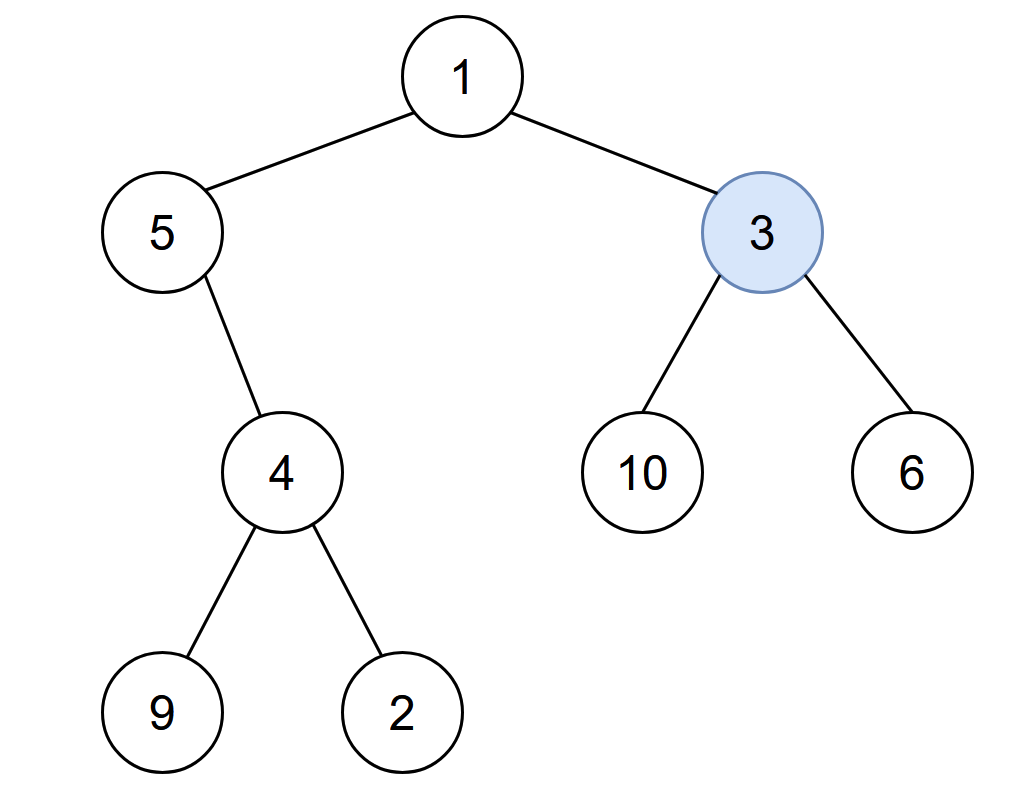Amount of Time for Binary Tree to Be Infected (Burnt)
 Chetan Datta
Chetan DattaTable of contents
Problem Statement
You are given the root of a binary tree with unique values, and an integer start. At minute 0, an infection starts from the node with value start. (link)
Each minute, a node becomes infected if:
The node is currently uninfected.
The node is adjacent to an infected node.
Return the number of minutes needed for the entire tree to be infected.
Example 1:

Input: root = [1,5,3,null,4,10,6,9,2], start = 3
Output: 4
Explanation: The following nodes are infected during:
- Minute 0: Node 3
- Minute 1: Nodes 1, 10 and 6
- Minute 2: Node 5
- Minute 3: Node 4
- Minute 4: Nodes 9 and 2
It takes 4 minutes for the whole tree to be infected so we return 4.
Example 2:

Input: root = [1], start = 1
Output: 0
Explanation: At minute 0, the only node in the tree is infected so we return 0.
Solution
Idea: The parent and child nodes catch fire at the same time.
When we are at any specific node, we need to know about three things:
Parent node
Left child node
Right child node
We store the parents of each node in a map. This map provides the parent of any given node. We also keep track of the nodes that have already burned, so if we encounter a burned node again, we won't burn it again.
Note: We use BFS to build the parent map and to burn the tree.
Time - O(n)
Space - O(n)
class Solution {
public int amountOfTime(TreeNode root, int start) {
Map<TreeNode, TreeNode> parentMap = new HashMap<>();
TreeNode startNode = buildParentMapAndFetchStartNode(root, parentMap, start);
Set<TreeNode> burnt = new HashSet<>();
Queue<TreeNode> queue = new ArrayDeque<>();
queue.add(startNode);
int timer = -1;
while(!queue.isEmpty()){
timer+=1;
int size = queue.size();
for(int i=0; i<size; i++){
TreeNode node = queue.poll();
TreeNode left = node.left;
TreeNode right = node.right;
TreeNode parent = parentMap.get(node);
burnt.add(node);
if(left!=null && !burnt.contains(left)){
queue.add(left);
}
if(right!=null && !burnt.contains(right)){
queue.add(right);
}
if(parent.val!=0 && !burnt.contains(parent)){
queue.add(parent);
}
}
}
return timer;
}
private TreeNode buildParentMapAndFetchStartNode(TreeNode root, Map<TreeNode, TreeNode> parentMap, int start){
parentMap.put(root,new TreeNode(0,root,root));
TreeNode startNode = null;
Queue<TreeNode> queue = new ArrayDeque<>();
queue.add(root);
while (!queue.isEmpty()){
TreeNode node = queue.poll();
if(node.val == start){
startNode = node;
}
if(node.left!=null){
parentMap.put(node.left, node);
queue.add(node.left);
}
if(node.right!=null){
parentMap.put(node.right, node);
queue.add(node.right);
}
}
return startNode;
}
}
Subscribe to my newsletter
Read articles from Chetan Datta directly inside your inbox. Subscribe to the newsletter, and don't miss out.
Written by

Chetan Datta
Chetan Datta
I'm someone deeply engrossed in the world of software developement, and I find joy in sharing my thoughts and insights on various topics. You can explore my exclusive content here, where I meticulously document all things tech-related that spark my curiosity. Stay connected for my latest discoveries and observations.